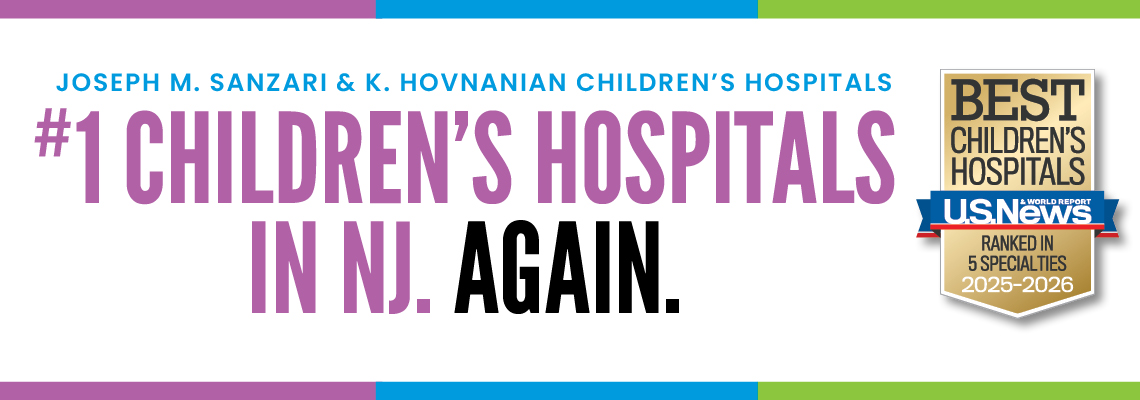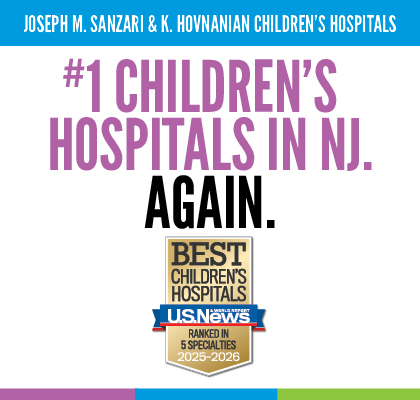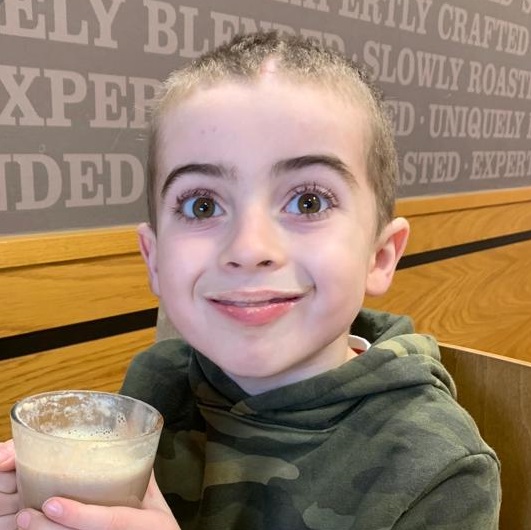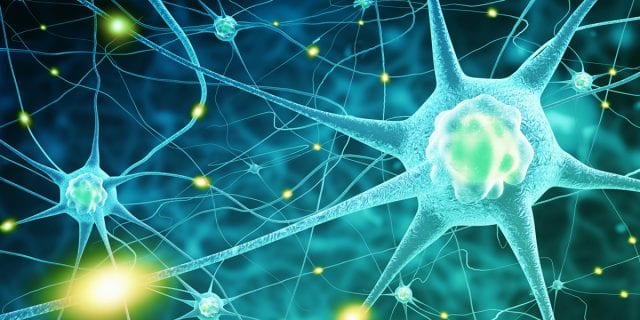Pediatric Epilepsy Care
Compassionate, Specialized Care in New Jersey For Children with Seizures
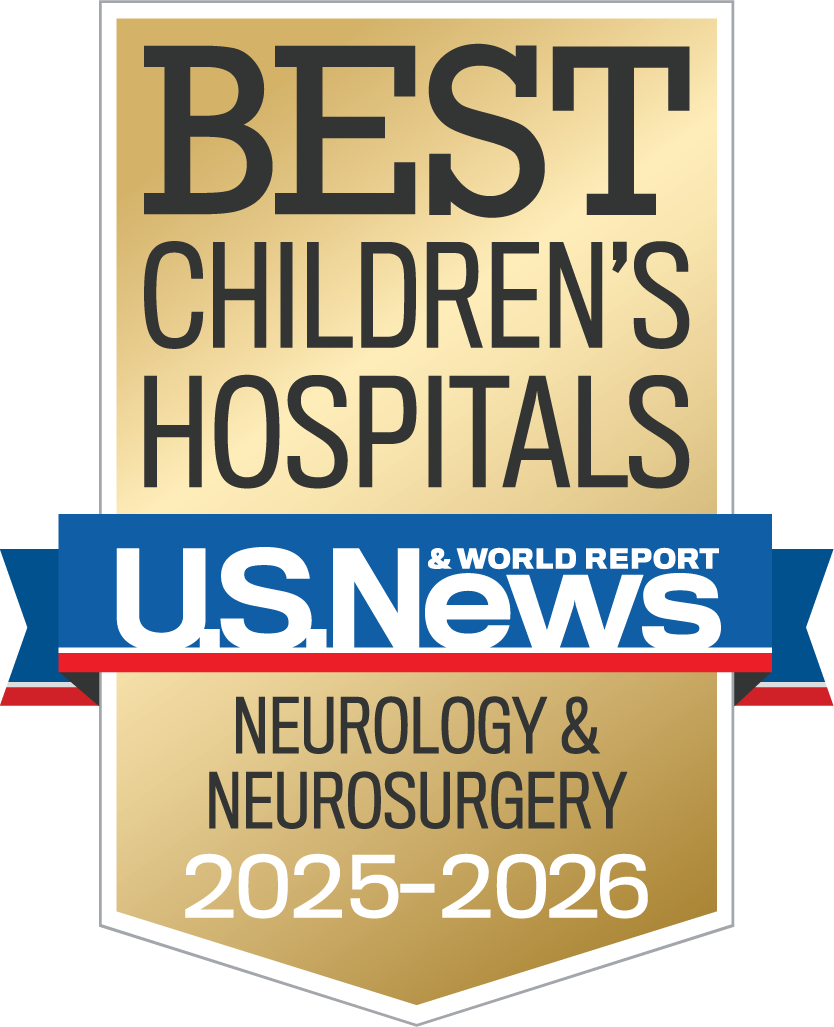
Witnessing your child having a seizure is life-changing. And while getting an epilepsy diagnosis can be traumatic for the whole family, it may bring patients one step closer to realizing a seizure-free life. You can feel confident knowing that there are leading pediatric epilepsy experts with access to the latest treatments nearby.
At Hackensack Meridian Children's Health, we understand the challenges that families face when dealing with pediatric epilepsy. Our board-certified pediatric epilepsy specialists across New Jersey provide comprehensive evaluation, diagnosis, and individualized treatment plans tailored to your child’s needs. Whether your child is newly diagnosed or seeking advanced treatment for difficult-to-control epilepsy, our team is here to support you every step of the way.
What Is Pediatric Epilepsy?
Epilepsy is a neurological condition that causes recurrent, unprovoked seizures. In children, it can impact behavior, learning, development, and emotional well-being. While epilepsy has no cure, treatment can significantly reduce or even eliminate seizures for some children, helping them thrive at home, in school, and in life.
Personalized Treatment Options
Every child is different, and so is every treatment plan. While there is no cure for epilepsy, prolonged seizure-freedom is the goal of treatment. Even if complete seizure-freedom is unattainable, effective management strategies can help minimize seizure frequency and/or intensity, and improve quality of life.
Our team develops customized strategies based on your child’s age, type of seizures, overall health, and family goals. Personalized treatments may include:
- Diet Therapy: Specialized high-fat, low-carbohydrate diets such as the modified Atkins and ketogenic diets may help control seizures. Some children even achieve seizure freedom with dietary therapy alone.
- Medication Management: Anti-seizure medications are carefully chosen based on seizure type, side effects, age, and ease of use. Ongoing monitoring through EEGs and lab tests helps evaluate treatment effectiveness.
- Neuropsychological Testing: Evaluates how epilepsy may affect your child’s thinking, behavior, and learning at home and in school. It also plays a key role in preparing for surgical treatment, when needed.
- Vagus Nerve Stimulation (VNS): A device implanted in the chest sends electrical impulses to the brain, helping reduce seizure activity. This may be recommended for children 12+ with partial seizures not well managed by medication.
- Minimally Invasive Laser Procedures: Using robotic technology and advanced planning, this option targets seizure areas in the brain without a traditional craniotomy.
- Neuromodulatory Therapies: Options like deep brain stimulation (DBS) and responsive neurostimulation (RNS) help manage seizures in difficult-to-reach brain regions.
- Surgical Interventions: Our highly trained epilepsy surgeons perform precise operations to remove or treat the part of the brain where seizures start. Learn more about our pediatric neurosurgery team.
Contact Us
Joseph M. Sanzari Children's Hospital at Hackensack University Medical Center
30 Prospect Ave., Hackensack, NJ 07601
551-996-3200
Epilepsy Monitoring Unit at Joseph M. Sanzari Children's Hospital
551-996-8100
Hovnanian Children's Hospital at Jersey Shore University Medical Center
19 Davis Avenue, Neptune, NJ 07753
732-776-4551
JFK University Medical Center
65 James Street, Edison, New Jersey 08820
732-321-7010
How Is Epilepsy Diagnosed in Children?
Getting the right diagnosis is the first step toward an effective treatment plan. Our pediatric neurologists use a full range of tools to evaluate your child:
- Detailed medical history and neurological exams
- Electroencephalogram (EEG) testing to monitor brain activity
- Advanced imaging, including MRI and nuclear medicine scans (PET/SPECT), to pinpoint seizure origins
After diagnosis, your child will be cared for by a dedicated pediatric neurologist or pediatric epilepsy specialist who works closely with your family and care team to create a plan that fits your child’s life.
Epilepsy Clinics and Specialty Programs
We offer specialized programs to meet the diverse needs of children with epilepsy and related conditions:
Why Families Choose Hackensack Meridian Children’s Health for Pediatric Epilepsy Care
Choosing the right epilepsy care team can make a life-changing difference. Here's what sets us apart:
- Advanced Imaging & Technology: We are the only hospital in New Jersey offering SPECT scans to precisely identify where seizures start in the brain.
- Access to Clinical Trials: Your child may qualify for innovative treatments through clinical trials not widely available elsewhere.
- Top-Tier Accreditation: Both Joseph M. Sanzari Children’s Hospital and JFK University Medical Center are designated Level IV Epilepsy Centers by the National Association of Epilepsy Centers, the highest possible level for comprehensive care.
Pediatric Epilepsy: Common Questions from Families
To help your child feel comfortable and ensure accurate results, follow any instructions from your care team, especially if sleep deprivation is required. You may be asked to keep your child up late or wake them earlier than usual.
Dress your child in comfortable clothes, make sure they eat a normal meal beforehand (avoiding caffeine or sugary foods or drinks), and bring along a favorite toy or blanket for comfort. Explaining the test in simple, calming language, like “they’re going to take a picture of your brain’s activity”, can also ease anxiety. Parents are usually welcome to stay in the room for support.

